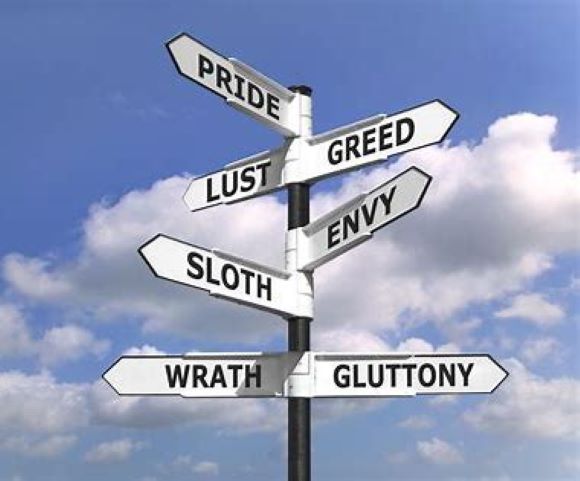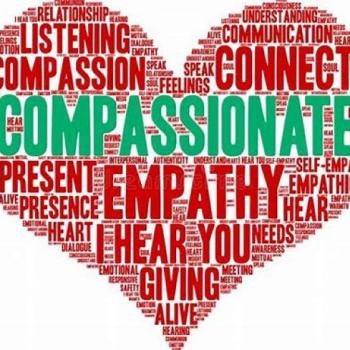TO Sin, or NOT to Sin… THAT is the Question
So, what is “sin” and what is “evil”?
Sin comes from the Greek word Hamartia, which means “to miss the mark or target,” as in missing a target in archery or darts. Sin is having a goal, shooting for it and missing. Please notice that the word is “sin” and not “evil.” They are often used interchangeably, but they are not the same thing. The word evil in Greek is kakós and means “bad, mischievous, or spiteful.” Evil is a much deeper and more complex thing to counteract than sin. Sin often becomes evil when sin is not recognized, admitted, and trained away.
Recognizing “Oops, I Missed the Mark.”
So, how do we come back from sin and “missing the mark”? First, you need to recognize that there is a goal or target you’re shooting for. When we are young, identifying the target is usually taught by our parents or another adult. “Jimmy! Don’t kick that cat! That’s not nice.” Or “Judy, why did you pull that dog’s tail? Don’t do that!” Over time, through trial and error, we recognize that the ultimate target usually involves the four cardinal virtues—prudence, justice, temperance, and fortitude, tied to the three theological virtues of faith, hope, and love. As we age, we begin to judge our actions not by if mom or dad is peeved with us but by whether our efforts live up to the seven virtues.
I Missed, Now What?
Recognizing that you missed the goal, you can go to the next step—admitting. Admitting you need to practice the shot and reconciling yourself to the fact that you are willing to put in the time and effort to get it right. This is where the work starts, and frustration blossoms. If any of you have thrown a dart, shot an arrow, or thrown a baseball, you know the annoyance of missing the target entirely and having to retrieve your dart, arrow, or ball from the neighbor’s yard or tree. This is a crucial time and very humbling. Every throw or shot, you ask, “Is it worth it? Do I care enough to do this right?” If the answer is “no,” you walk away unfulfilled. But if the answer is “Yes,” you try again. Eventually, you dissect what you’re doing—how you’re holding the ball, how your wrist is poised as the dart leaves your hand, where you’re sighting your target before the arrow leaves your fingers and bow. This dissection or discernment is the key. How you discern and what answers you get from the discernment will aid in hitting the mark and finding the bullseye on the target. You change your technique until you get it right.

I Hit the Target! Now What?
It’s great that you hit the bullseye. But now you need to change it up—step to the left, right, back, lay down, and/or shoot over your shoulder. Just because you hit the mark three times in a row under perfect conditions doesn’t mean you’ve mastered the game! No. You need to keep practicing in every condition, distance, and circumstance. It’s the only way you truly can master hitting the mark.
So, What’s Practicing Got to Do with Overcoming Sin?
The key is 1) recognizing, 2) admitting, 3) reconciling, 4) practicing, and 5) changing it up. We all will “miss the mark.” We’re human. We sin. But it’s recognizing that we haven’t done the right thing and admitting we went foul—that is the key to success. Who do we admit it to? First and foremost, ourselves. We need to realize we made the mistake and then discern why we did it. Was it pride? Fear? Something else?
Then, we need to reconcile or make peace with and come back together. This is not just with yourself, as important as that is. No. It’s also with whomever you have wronged. Was it your sister or brother? Was it the guy or gal down the street? A spouse? God? Is this humbling? Yup. Can it be painful to admit you were in the wrong? Oh, yeah. But it is necessary for reconciliation.
After reconciling, it’s imperative we practice the right way, always with the ultimate goal in mind. We’ve already done it the wrong way. We’ve figured out a better way. Short-term practice is excellent, but we must extend the game to make it a marathon to make it last. We need to change it up. Change how, when, where, and why we do the right thing. This is how you become a master of the shot and hit the mark—staying away from sin.

I Didn’t Know I Was Sinning…
Really? We, humans, have a terrible habit of not wanting to admit we saw the lead-up to the sin and then jump on the sin as if it came out of nowhere. We justify, “It’s okay if I do it just this once …” or “Maybe it’s time to walk on the wild side?” or “If I don’t admit the problem, maybe it’ll go away.” That’s like refusing to train your puppy to signal when it needs to go outside, then being upset when the poor pooch does its business on your carpet!
No. If we have a conscience, if we know the difference between good and bad, and if we believe in ultimate good versus ultimate evil, then we shouldn’t lie to ourselves. If we sin, it isn’t the end of the world. We can admit it, reconcile after it, and practice doing better. But, if we “miss the mark,” continuing down the same path without trying to correct our shot, eventually, it will ruin our ability to aim for the right target.
So, am I my brother’s (or sister’s) keeper?
Sin doesn’t just happen! There are signs leading up to the big event—symptoms of which we must become aware. Remember what Paul said in Romans 13: “Sin is anything that doesn’t show love for another—putting their good first.”
According to Ezekiel 33, we are responsible for helping others do the right thing, keeping them on the right path, and helping them to grow their conscience. In this case, we are the “Watchmen” for doing the right thing. Who wouldn’t correct a child if they were going to touch a hot stove or throw a rock through the neighbor’s window? How is it any different when we see people in our community, our city, or our nation not doing the loving thing for another?
Jesus gave us in Matthew 18 a “Three strikes—you’re out!” policy. If someone sins against you, you should 1) speak with them alone, 2) then with another from the church (community), and finally 3) with the whole church. At any point, reconciliation can, and hopefully will, happen.
So, is pointing out sinful acts scary? It can be.
Is it risky? It can be. Remember, Jesus never promised life would be easy!
Is it my job to be “my brother’s or sister’s keeper”?
Well, I think you know the answer to that.













